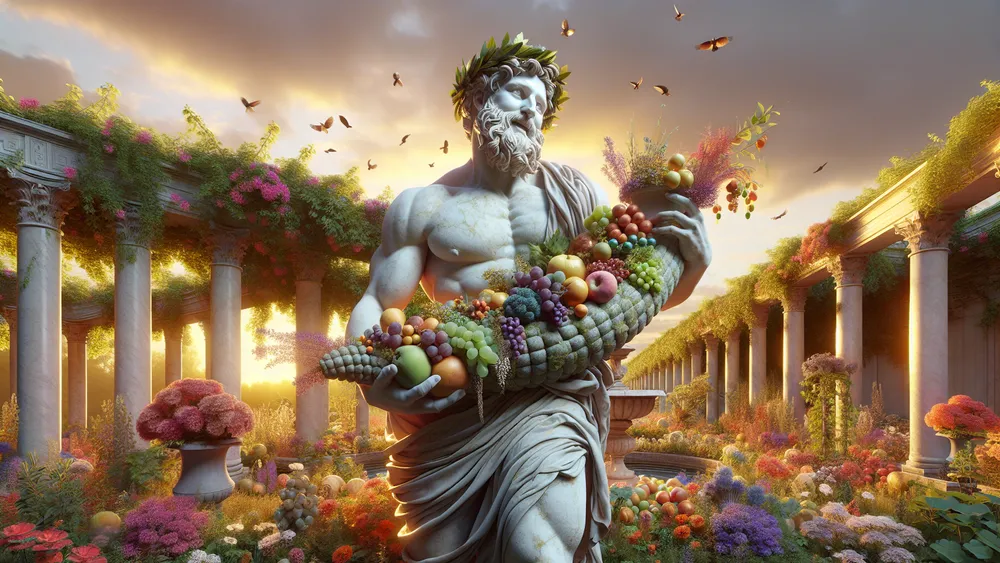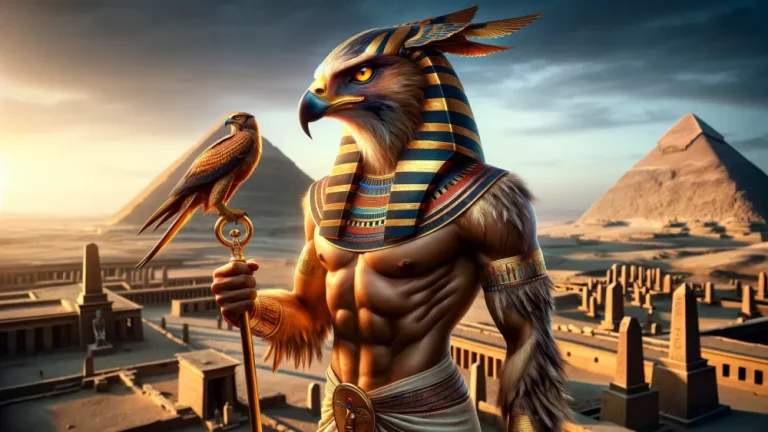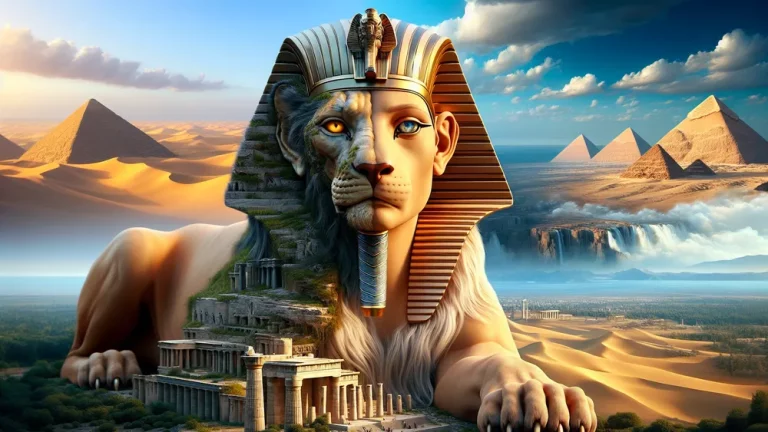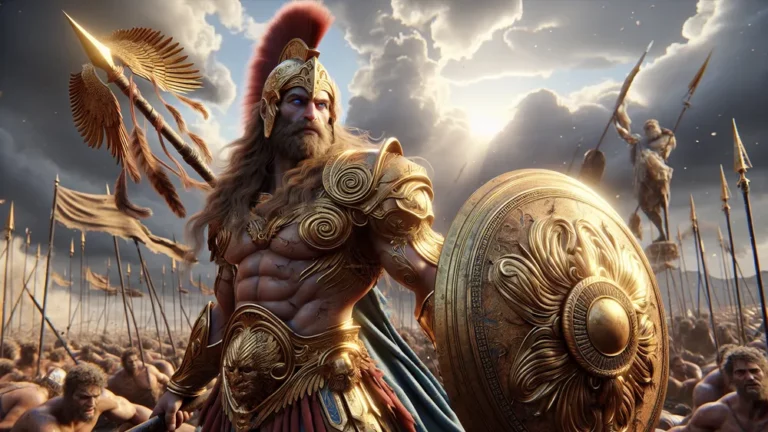Priapus: Greek God Of Fertility And Male Genitalia
Priapus, who is the god of growth and men in Greek myths, is an interesting person. He matters for more than how he looks, which is often shown with a big man part that stays like that. Priapus was linked with gardens and animals and fruit because this showed how important growing things were to old Greek people.
Key Points:
- Priapus is a Greek god of fertility, growth, and male genitalia.
- He is often shown with a large and permanent male organ, symbolizing growth and fertility.
- Priapus is linked to gardens, animals, fruit plants, and merchants on sea voyages.
- His parents are varied in different stories, including Aphrodite, Dionysus, Hermes, Zeus, and Pan.
- Hera’s curse on Priapus made him impotent and ugly, leading to his rejection by other gods.
- Priapus is worshipped in small garden shrines and fields, rather than grand temples.
- Known for his role in promoting fertility in agriculture and protecting merchant sailors.
He was also like a god for people who sold things on boats and helped them on hard sea trips. This writing will see where he came from, how he is shown, and what he does in old Greek stories.
Priapus: Overview and Key Facts
| Category | Description | Key Points |
|---|---|---|
| Parents | Different stories say Priapus has different parents | Aphrodite and Dionysus, Dionysus and Chione, Hermes and Aphrodite, Zeus and Aphrodite, Pan and Aphrodite |
| Physical Appearance | Priapus is shown with a big and permanent man part | Shows growth and male parts |
| Roles | Things he does include being a god of growth and farming and making sure gardens are safe | Linked with animals, fruit plants, and people who sell things on boats |
| Symbols | Man part, fruits like grapes and figs, and tools used in gardens like a sickle | Stand for growth, farming, and safety |
| Characteristics | A happy, earthly god | Loves simple joys of life and nature |
| Powers | Can make places where nothing grows become full of life and keep animals healthy | Very important for old groups of people |
| Worship | Small places for worship in gardens and fields, no big temples | Plays a vital role in growing and farming |
| Mentions in Ancient Texts | He is in works by Ovid, Virgil, and Herodas | Shown as a lustful, pitiable, and guarding figure |
Origins and Family
Considering we have a general overview of Priapus, let’s go deeper into his beginnings, and see the different stories of his parents and what they mean for knowing who he is.
Parents and Lineage
Priapus, a Greek god of growth and men, has a complicated and different family. Different stories say his parents are Aphrodite and Dionysus or Dionysus and Chione or Hermes and Aphrodite or Zeus and Aphrodite or Pan and Aphrodite, and this makes his family very varied and complicated. He has many sides. The different parents of Priapus show various parts of who he is and what he does.
For example, his link with Aphrodite, who is the goddess of love, shows his connection to growth and male parts. His link to Dionysus, who is the god of wine and parties, shows his role in farming and different times of nature. Likewise, his link to Hermes, the god who sends messages, shows his role as a guide and protector.

Knowing these different parents is very important. It shows many sides of Priapus and what he means in Greek stories.
| Parents | What It Means |
|---|---|
| Aphrodite and Dionysus | Connection to growth and male parts |
| Dionysus and Chione | Link to farming and nature |
| Hermes and Aphrodite | Role as a guide and protector |
| Zeus and Aphrodite | Link to the main god and growth |
| Pan and Aphrodite | Connection to wild places and growth |
Understanding the varied parentage of the Greek god Priapus reveals different aspects of his character and significance in Greek mythology.
The Curse of Hera
Hera’s curse on Priapus when he was in Aphrodite’s womb made a big effect on his life and who he was. In the story, Hera was jealous of Aphrodite because Paris said she was the most beautiful goddess, and Hera decided to give punishment to all who Aphrodite cared for.
This curse made Priapus not able to have children, look bad, and think bad thoughts, and that was very different from other gods known for being kind to people. Then he was rejected by the other gods and had to live on Earth, taken in by shepherds. It changed everything. This bad part of Priapus’ life shows in Greek myths and is remembered.

Depiction and Symbols
Now, after we have looked at where Priapus comes from and his family, let’s go into how he looks and things that represent him. To understand more about who he is and his jobs in Greek stories.
Physical Appearance
Priapus, the Greek god of growing things and men’s parts, is often shown with a different and noticeable look. He is mostly seen as a short man with a very big and hard penis.
This part of him is a big deal in how he is shown in art from Greece and Rome, where he is in many statues and pictures. For example, in a fresco from Pompeii’s House of the Vettii, there is Priapus. He is weighing his penis. Against a bag full of coins. This shows how important his job of making things grow is.
The big deal about Priapus’ physical look is that it shows what his jobs are. His oversized and permanent erection is a sign of his power to make gardens and animals grow and stay healthy. He is short, connected to the ground and gardens, and often shown in statues and pictures. And this is also tied to his job with men’s parts, showing he is a protector and helper of growth.

This way, Priapus’ look shows his god nature and why he is important in Greek and Roman stories.
| Physical Feature | Meaning |
|---|---|
| Oversized and permanent erection | Shows growth and health |
| Dwarfish stature | Connected to the ground and gardens |
| Peaked Phrygian cap | Shows he is a Mysian god |
The Sickle and Its Significance
The sickle is an important symbol linked to Priapus, the Greek god of growing things and men’s parts. This farming tool is usually shown in his right hand, showing his job of making sure gardens and animals have plenty. The sickle also had a darker meaning; it was used to threaten thieves and was connected to castration.

And so, the sickle scared people who might steal from gardens and fields under his protection. Additionally, the sickle’s link to castration, too, shows the complicated many-sided nature of Priapus’ character, showing both his sides that make and destroy.
Roles and Associations
Now that we have looked at how Priapus looks and the things that represent him, let’s go into his different jobs and connections, to show more about his importance in Greek stories.
Fertility and Agriculture
Priapus, the Greek god of growing things and men’s parts, played a big part in old Greek farming. He was connected to gardens, animals, and fruit plants, which were very important parts of the Greek economy. His job showed how important growing things was in ancient Greece, where farming was the base of the economy and almost 80% of the people were working in it.
Priapus being linked to gardens, animals, and fruit plants shows how key fertility was for the growth of old Greek cities. These cities needed farming to make extra food for trade and daily living. In old Greek farming, Priapus’ job was shown in the ways of farmers, who used things like crop changing, watering, and taking care of the soil to make sure their lands stayed fertile.
His link to gardens, animals, and fruit plants shows how keeping nature balanced and having lots of crops was a big deal. As a god of growing things, Priapus stood for ideas of taking care of things and careful use that old Greek farming was based on. His impact is still seen in today’s farming actions.

Protector of Merchant Sailing
Priapus, the Greek god of growing things and men’s parts, also played a big part as the god of trade sailing. He was a guide and guardian. He helped merchants through bad waters, making sure they had safe trips and successful journeys. Merchants looked for Priapus’ help by carrying his picture or a phallus on their boats.

This was thought to keep danger away and bring good luck. This shows why Priapus’ job was important in old Greek and Roman ocean trade.
Priapus was a crucial protector for merchants during ancient Greek and Roman sea trade, bringing safety and success to their voyages.
The Pantheon of Greek Gods
The group of Greek gods is a large and interesting world, having many gods with different jobs and tales. From strong Zeus to mysterious Hades. Each one plays a big part in the mix of Greek stories.
For a full look at the Greek gods, visit our list of all the Greek gods, which goes into the lives and tales of every major god and goddess.
FAQs
1. What is the significance of Priapus’ oversized phallus?
The significance of Priapus’ oversized phallus lies in its symbolism of fertility, virility, and the life-giving energy that permeates all existence.
2. How does Priapus’ role as a fertility god reflect ancient Greek values?
Priapus’ role as a fertility god reflects ancient Greek values by emphasizing the importance of fertility and agriculture in their society, as seen in his association with gardens, livestock, and fruit plants.
3. What is the story behind Hera’s curse on Priapus?
Hera’s curse on Priapus was a result of her jealousy towards Aphrodite, whom Paris had chosen as the most beautiful goddess, and it made Priapus impotent, ugly, and foul-minded.
4. How was Priapus worshipped in ancient Greece and Rome?
Priapus was worshipped through sacrifices, particularly of donkeys, and his statues were used as scarecrows and guardian deities in gardens, while also serving as a patron god for merchant sailors and fishermen.







